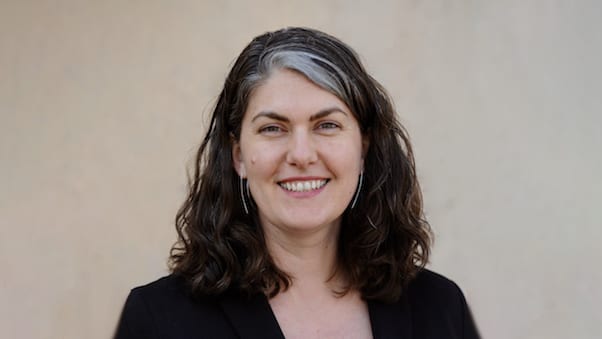
A Clemson University faculty member has earned a prestigious Spencer Foundation Grant to study how rural school leaders navigate communities to improve educational equity. According to Daniella Sutherland, assistant professor in Clemson’s College of Education, the research is the first of its kind to study this issue specifically in rural schools.
Sutherland and three Clemson graduate students interview 15-20 educational leaders in multiple South Carolina schools, three schools in West Virginia and three schools in Vermont. Erin McHenry-Sorber, associate professor of higher education at West Virginia University, will lead data collection in West Virginia and collaborate on data collection in Vermont. The research team is currently working on data collection in Upstate and Lowcountry schools as well as schools along the I-95 corridor, which has historically been characterized by poor, rural schools faced with inequitable school funding and poor student achievement.
“Very little work has been done to understand the specific challenges rural leaders encounter and the strengths they can utilize as they try to create equitable schooling practices,” Sutherland said. “We hope to aid educators in the specific states we’re studying, certainly, but we hope that the lessons learned through this research can apply to any rural area across the country.”
Sutherland said rural school leaders operate in a “fishbowl” where they are often highly visible as leaders in their communities. Rural schools are often the heart of rural communities, as well as one of the primary public institutions accessible, which means more community members are connected to the school.
That connection can be a strength, but it also comes with heightened scrutiny of the educational leaders, who are automatically recognized as community leaders. They are more visible, and what they do is noticed and felt by the community. However, Sutherland said these leaders’ positions are often more at risk because of the nature of rural communities.
The research team hopes to research the expectations and pressures community members have for their school leaders around different aspects of equity—including racial, socio economic and issues around intellectual disabilities—and how rural school leaders navigate those expectations.
“We actually call our study ‘We’ll be Fired’ because that is often the perception of rural school leaders,” Sutherland said. “If they do something that goes against community beliefs or expectations, communities are often quicker to remove them from their positions.”
Sutherland said the research team is prioritizing building trust with rural community members in order for them to feel comfortable telling the researchers about their experiences and expectations about equity—or inequity—in the schools. This is why researchers are starting in communities where research team members have known connections to the schools.
Sutherland and graduate students Jacquelyn Williams, Tomiko Smalls and Amber Lange have extensive knowledge and experience with rural schools in the areas where they we are conducting research, which will help them build connections in the communities and among school leaders.
In later stages of the research, Sutherland and the team will lead discussions with school leaders about how they can specifically address and improve on issues of equity in their schools, and the team will present its research to state and national conferences. Faculty members will also use findings to redesign curriculum and instruction in their respective educator and educational leadership preparation programs.
“The primary value and significance of this kind of research are the resulting supports for rural educational leaders, whether they come in the form of interventions, strategies or professional development,” Sutherland said. “In the long term, we would like to use the findings from this study to design equity training specifically for rural leaders that can be scaled up.”
According to Jeff Marshall, associate dean for research and graduate studies in Clemson’s College of Education, Sutherland’s research aligns with the college’s greater mission to positively affect educational equity through outreach and educator instruction.
Marshall said he looks forward to seeing how Sutherland and the research team practically apply what they learn for the benefit of students in the College of Education and in service to educational leaders across the state and nation.
“Dr. Sutherland’s work provides an excellent illustration of how faculty in the College of Education continue to improve the issues surrounding equity and well-being of students, teachers and leaders in South Carolina’s schools,” Marshall said. “This work builds upon our land-grant focus that seeks to vastly improve P-20 education throughout the state.”
END
Get in touch and we will connect you with the author or another expert.
Or email us at news@clemson.edu

